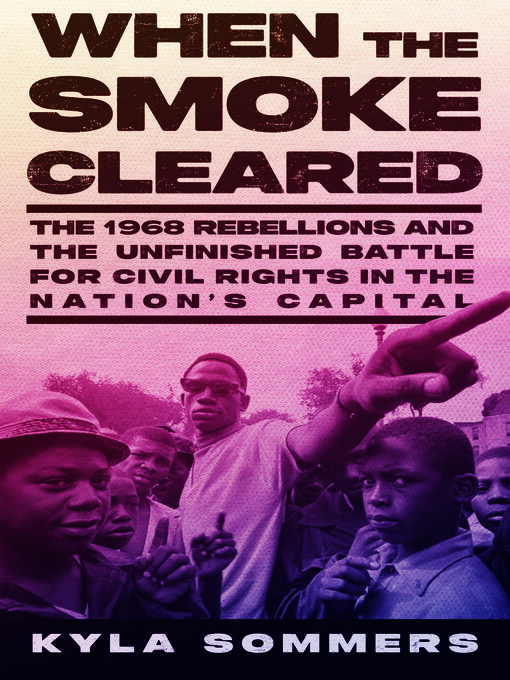Echoing James Forman Jr.'s Locking Up Our Own, a riveting story of race, civil rights, and rebellion in Washington, DC
In April 1968, following the murder of Martin Luther King Jr., a wave of uprisings swept across America. None was more visible—or resulted in more property damage, arrests, or federal troop involvement—than in Washington, DC, where thousands took to the streets in protest against racial inequality, looting and burning businesses in the process. The nation's capital was shaken to its foundations.
When the Smoke Cleared tells the story of the Washingtonians who seized the moment to rebuild a more just society, one that would protect and foster Black political and economic power. A riveting account of activism, urban reimagination, and political transformation, Kyla Sommers's revealing and deeply researched narrative is ultimately a tale of blowback, as the Nixon administration and its allies in Congress thwarted the ambitions of DC's reformers, opposing civil rights reforms and self-governance. And nationwide, conservative politicians used the specter of crime in the capital to roll back the civil rights movement and create the modern carceral state.
A vital chapter in the struggle for racial equality, When the Smoke Cleared is an account of open wounds, paths not taken, and their unforeseen consequences—revealed here in all of their contemporary significance.

